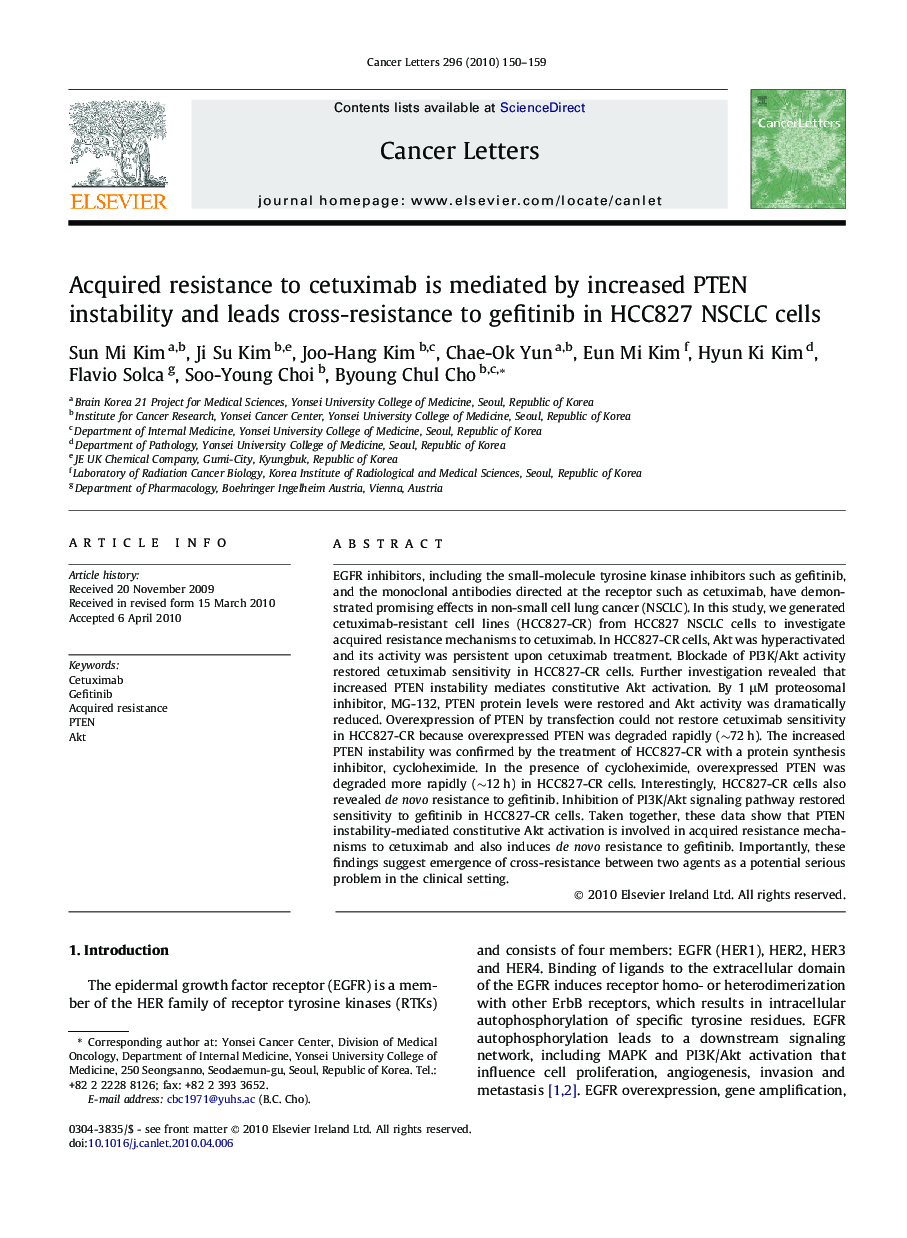| Article ID | Journal | Published Year | Pages | File Type |
|---|---|---|---|---|
| 2114046 | Cancer Letters | 2010 | 10 Pages |
EGFR inhibitors, including the small-molecule tyrosine kinase inhibitors such as gefitinib, and the monoclonal antibodies directed at the receptor such as cetuximab, have demonstrated promising effects in non-small cell lung cancer (NSCLC). In this study, we generated cetuximab-resistant cell lines (HCC827-CR) from HCC827 NSCLC cells to investigate acquired resistance mechanisms to cetuximab. In HCC827-CR cells, Akt was hyperactivated and its activity was persistent upon cetuximab treatment. Blockade of PI3K/Akt activity restored cetuximab sensitivity in HCC827-CR cells. Further investigation revealed that increased PTEN instability mediates constitutive Akt activation. By 1 μM proteosomal inhibitor, MG-132, PTEN protein levels were restored and Akt activity was dramatically reduced. Overexpression of PTEN by transfection could not restore cetuximab sensitivity in HCC827-CR because overexpressed PTEN was degraded rapidly (∼72 h). The increased PTEN instability was confirmed by the treatment of HCC827-CR with a protein synthesis inhibitor, cycloheximide. In the presence of cycloheximide, overexpressed PTEN was degraded more rapidly (∼12 h) in HCC827-CR cells. Interestingly, HCC827-CR cells also revealed de novo resistance to gefitinib. Inhibition of PI3K/Akt signaling pathway restored sensitivity to gefitinib in HCC827-CR cells. Taken together, these data show that PTEN instability-mediated constitutive Akt activation is involved in acquired resistance mechanisms to cetuximab and also induces de novo resistance to gefitinib. Importantly, these findings suggest emergence of cross-resistance between two agents as a potential serious problem in the clinical setting.
